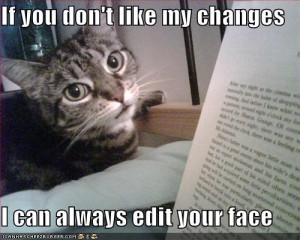I’ll start by stating something that I hope is obvious: No, you don’t need an MFA to be a writer. You don’t need an MFA to get published.
It’s been fashionable in recent years to bash MFA programs. The criticisms are many:
MFA Programs churn out cookie-cutter writers who all write exactly the same.
There may be a modicum of truth to this. I don’t think any program encourages this. It makes me think of the armed forces, where the first goal when you enlist is to break you down and strip you of your individuality in the belief that you will be more efficient if you’re just like everyone else.  In an MFA program, you just can’t let ‘em do that.
MFA Programs are only about literary writing and are useless if you want to write genre or commercial fiction.
It’s true that most MFA programs I know focus on literary fiction, mainly in what is assigned as reading. And the snobbier programs make no effort to hide their disdain for genre/commercial fiction. If that’s your interest, I recommend doing your homework before signing up for one of those programs. But understand: the building blocks of writing are the same no matter what. If you get fed a diet of literary fiction, you can’t help but use that knowledge to write your vampire novel.
MFA Programs are full of pretentious, turtleneck-wearing snobs.
Actually, I think they stopped wearing turtlenecks about 30 years ago. But, yes, you’ll see these people too. While they were in the minority, my program certainly had them. They all subscribed to the “mercy is for the weak†school of critiquing, where close friends were vaunted with praise while anyone not in the clique was vivisected. In many respects, it resembled high school.
MFA Programs bilk people out of money by imparting knowledge you can get by reading a few books.
See, here’s where I take exception. And I take a lot of exception. For a while, the number of “I hate MFA†or “You don’t need an MFA†blog posts had dwindled but recently I’ve seen a few more crop up. (I won’t link to them because, well, if you’re that curious, do a Google search. I’ve no desire to send them traffic.) The crux of the argument is, “If you really want an MFA, go read these five books on craft, join a critique group, and **poof**, you’ll have your MFA.â€
The problem I have with this approach is that it fails to take a very key part of the process into account: the fact that not all people learn the same way. Or at the same speed. Or respond to the same sort of stimuli. This approach offers a cure all for a population of writers with very diverse backgrounds and capabilities for learning.
I’ll tell you what an MFA program did for me. It gave me context. It was part reading books on craft and part reading examples of writers doing interesting things and part experimentation. And it was interaction. See, that’s how schools work. We don’t just throw books at kids and say, “There’s your education.†Teachers guide and help provide context to what can be an overwhelming sea of information.
That’s what I wanted. From years of reading, I knew a lot about writing. It was almost instinctual. But when something didn’t work for me, I had a hard time articulating why. The MFA program gave me the vocabulary I needed. It helped me identify flaws in my own writing, (“It’s not working, Brian, because your main character isn’t doing anything!â€) and be precise when providing constructive criticism for others.
You could give five books on craft to five different writers and they’ll each walk away with five different ideas of what was said. One of them might absorb the information completely and come away a better writer. Someone else, who doesn’t learn well visually, might come away as stupefied as ever.  Not their fault… they just need some context.
And, no, having an MFA doesn’t guarantee you’ll be a good writer. Just like going to med school doesn’t guarantee you’ll be a good doctor. (As the old joke goes, what do you call the guy who finished last in his class at med school? Doctor.) But I’m willing to bet that if you go and put in the work, you’ll learn something that makes you a better writer.
To sum up:
–You don’t need an MFA to write or be published.
–MFA programs can help guide writers who learn at different speeds and with different styles gain a better grasp of craft.
–Stop slamming MFA programs, you dork.
–I’ve shared this link before but it’s definitely worth sharing again.







